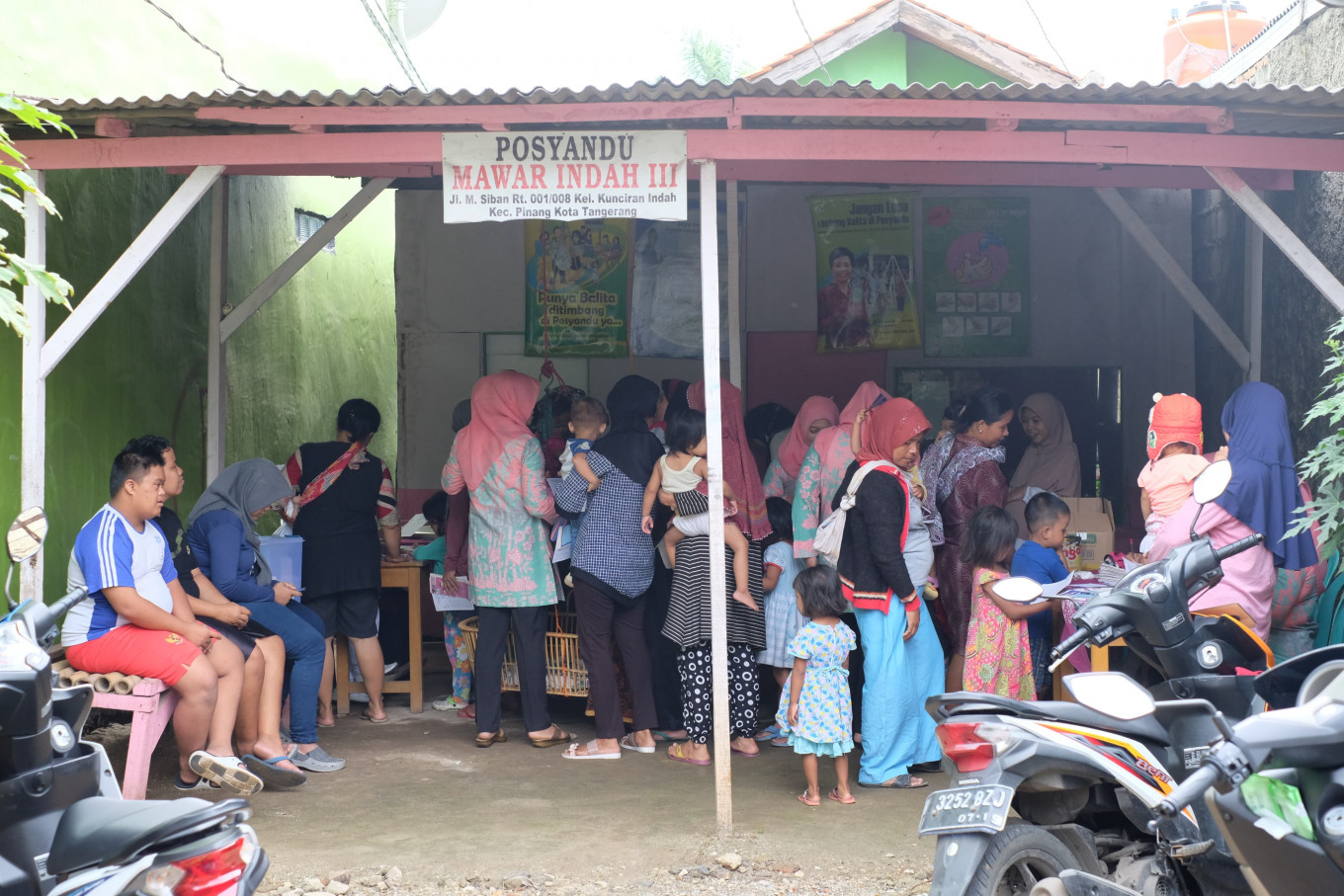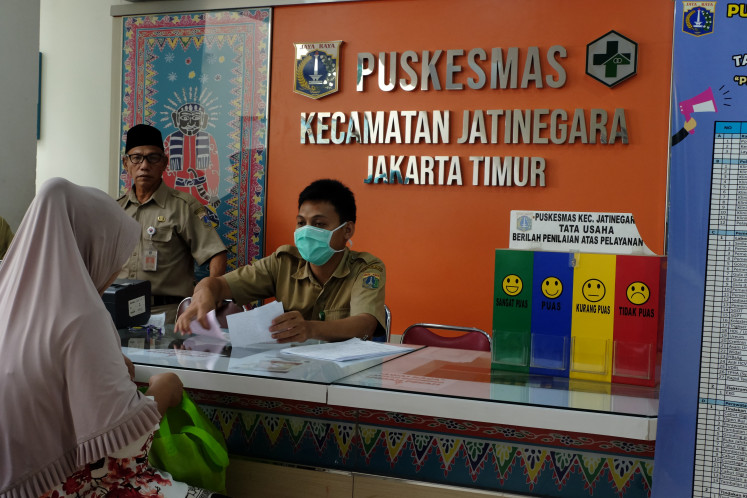Popular Reads
Top Results
Can't find what you're looking for?
View all search resultsPopular Reads
Top Results
Can't find what you're looking for?
View all search resultsGovernment targets improved health strategy, HHR capacity
Change text size
Gift Premium Articles
to Anyone
T
he impacts of the COVID-19 pandemic has been devastating for some countries, but Indonesia is among the lucky few that has successfully dealt with the health crisis and is navigating its way well toward economic recovery.
Regardless, the government is continuing to expand the health budget to mitigate other health risks and is making efforts to develop the country’s healthy and productive human resources.
“Which should come first, health or the economy? For me, both are equally important and must go together,” Finance Minister Sri Mulyani Indrawati said, responding to a journalist’s question on the government’s COVID-19 handling.
The Finance Ministry and the House of Representatives set a health allocation of Rp 187.5 trillion (US$12.1 billion) in the 2024 State Budget, equivalent to 5.6 percent of the entire budget.
Recent years have shown an increase in the health budget, which has been attributed to the pandemic. The health budget was Rp 172.3 trillion in 2020, and then reached the highest amount the following year at Rp 312.4 trillion, before decreasing to Rp 188.1 trillion in 2022.
The 2024 health budget marks an 8.7 percent increase from this year’s allocation of Rp 172.5 trillion.
The House has agreed that next year's health budget will be itemized under the Central Government Expenditure (BPP), with Rp 107.2 trillion to be allocated to ministries and institutions (K/L), Rp 14.2 trillion to noninstitutional (non-K/L) expenditures, and the rest to be allocated to regional administrations.
. (Courtesy of Finance Ministry/.)The government is prioritizing program funding to reach a goal of 14 percent reduction in the prevalence of stunting across all districts and cities in the country. The latest available Health Ministry data, published in 2022, show a reduction rate of 21.6 percent.
Other priorities include primary healthcare transformation to health promotion and disease prevention, including treatment and management for pregnant women with chronic energy deficiency, referral services transformation involving improved equal access to priority care for heart disease, stroke, cancer and kidney ailments, and transformative resilience in the national health system.
To encourage health industry growth, the government continues to urge innovation in domestically made medical equipment and is supporting the development of domestic products through the procurement of locally sourced raw materials.
Furthermore, it is prioritizing transformation in the financial system, the National Health Insurance Program (JKN) and health human resources (HHR).
HHR transformation aims specifically to increase the distribution of health workers, which is gravely needed.
The current data show that 91 percent of Puskesmas (community health centers) have at least one doctor on staff. Meanwhile, 61.5 percent of regional hospitals are staffed with doctors covering seven medical specialties and have been issued 236,075 registration certificates (STR) for their health workers.
Lastly, the government is also prioritizing the transformative needs of the health technology sector.
Sri Mulyani said demand for advanced and rapid developments in health technology must be met by local innovations for hospitals as well as innovations in pharmaceutical technology.
The increased health budget also called for a parallel increase in transparent, efficient and targeted funding, as budgetary allocations were now based on performance instead of mandatory spending.
In anticipation of this issue, Putut Hari Satyaka, the Finance Ministry’s budget director for human development and culture, has presented a strategy for addressing budgetary problems drawn from the health spending of other countries.
He proposes a three-pronged approach: open sources from the private or the philanthropic sectors; determine a clear priority scale; and create implementation stages.
The government is currently holding public consultation to draft implementing regulations for Law No. 17/2023 on Health.
Source: Finance Ministry












